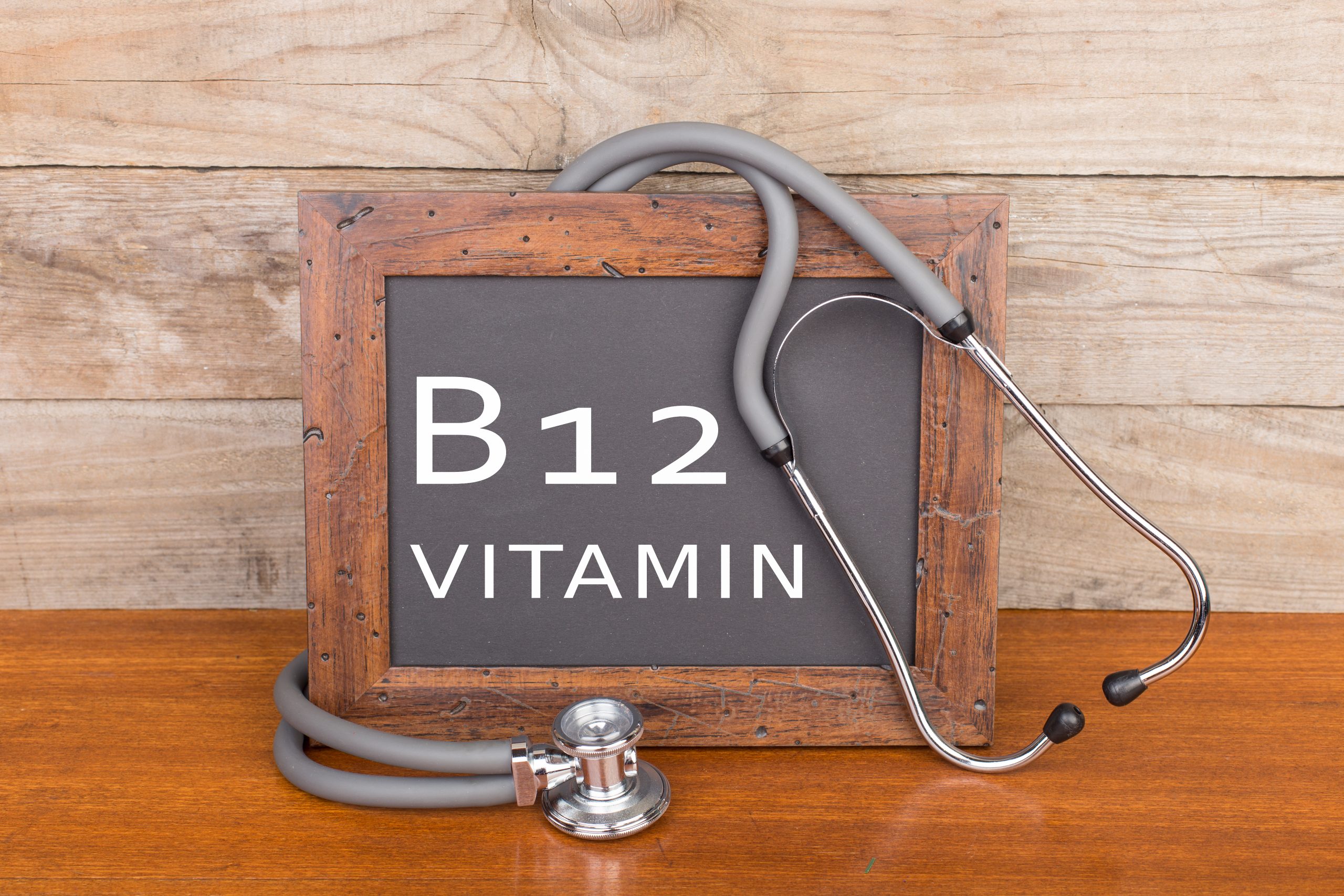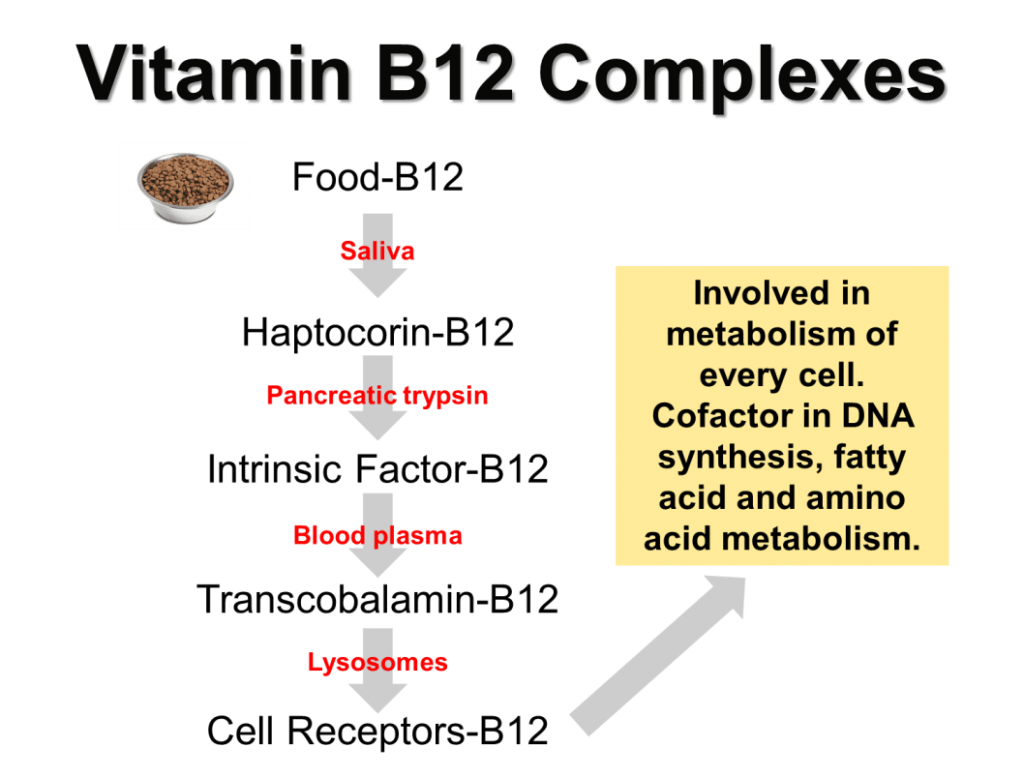
Cobalamin (B12) metabolism requires many complex pathways, in which a breakdown of any could lead to B12 deficiency. In a system that has many points for breakdown, having adequate B12 begins with a quality food source. Like vitamin D, animal protein is the primary source of B12 – a concern with vegan diets.

Provided there is sufficient dietary B12, malabsorption is the leading reason for B12 deficiency. Pancreatic enzymes breakdown haptocorin-B12 allowing it to bind with intrinsic factor. A recent study demonstrated up to 82% of EPI patients are B12 deficient (1).
Additionally, certain bacteria and parasites can release B12 from its bond with intrinsic factor and compete with its binding (2).
In patients with hypocobalaminemia, oral supplementation has proven effective even in patients with EPI or bacterial dysbiosis (3). It is believed with a high dietary content of B12, the transitory nature of enzymatic insufficiency and/or competitive microflora can often be overcome and required absorption will occur.
At-risk groups for B12 Deficiency:
- Exocrine pancreatic insufficiency (EPI)
- Chronic enteropathies
- Over 5 years of age
- Vegan diet
- Poor quality food source
References:
- Xenoulis G (2016) Feline exocrine pancreatic insufficiency: a retrospective study of 150 cases. JVIM
- Schjonsby H (1989) Vitamin B12 absorption and malabsorption. Gut
- Toresson L (2016) Oral cobalamin supplementation in dogs with chronic enteropathies and hypocobalaminemia. JVIM
